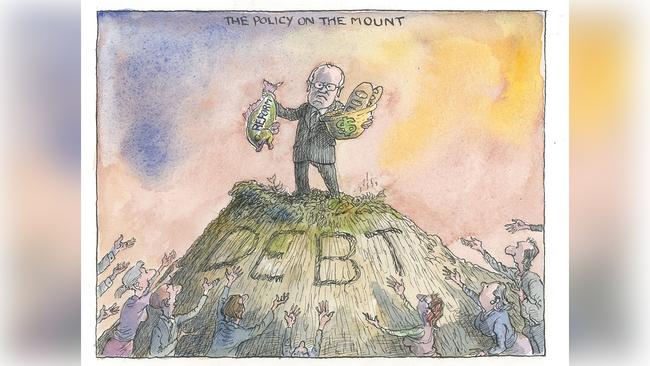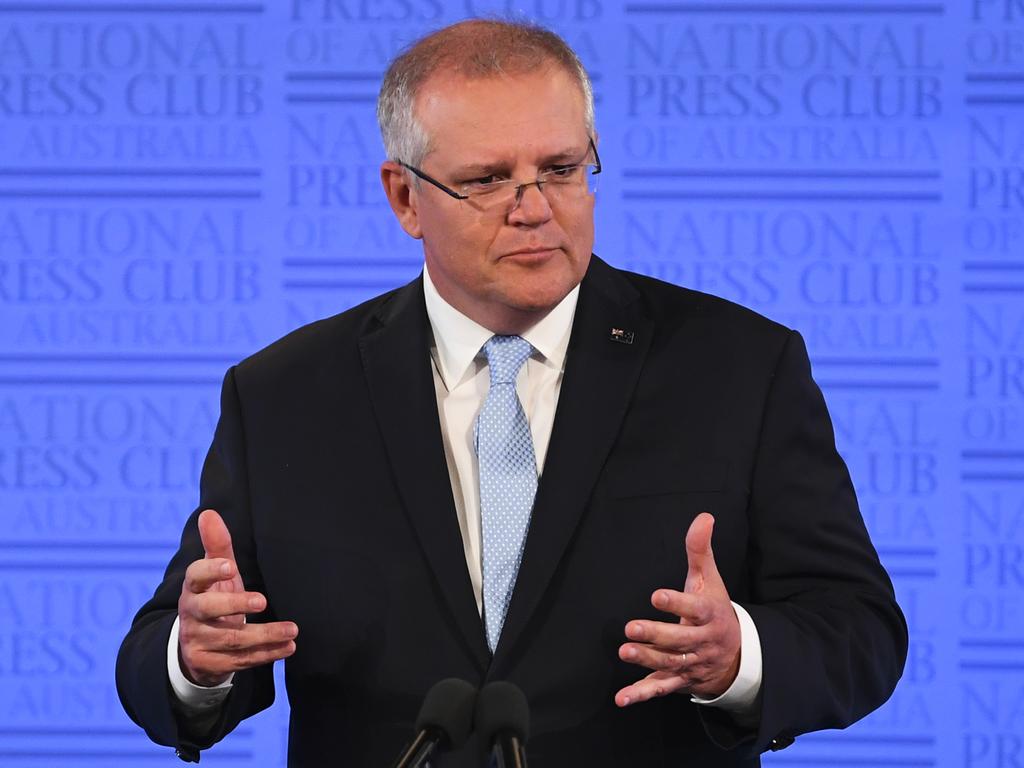
The COVID-19 crisis could open the way for an overhaul of the Federation in terms of reshaping just how power is shared between the states and Canberra thanks to the progress made by the national cabinet process.
Morrison’s obvious strength is in his speeches and he cleverly opened doors to see how the states, business and the unions will respond. And that will in turn dictate whether he can transform the goodwill evident into reform.
Business Council of Australia boss Jennifer Westacott, a long-term advocate, said the changes announced by Morrison should help remove the cultural bias in Australia against VET colleges and set the country up for lifetime skills training.
Centre for Policy Development chair Terry Moran welcomed the move to activity-based funding, which is based on the hospitals model, so an activity like nursing would have common funding.
The next step, Moran said, was for Canberra to take policy control of the system to help drive reform but that is where the states come into the bargain.
Moran comes to the debate as the former head of state training boards in Victoria and Queensland, the head of the Department of Prime Minister and Cabinet and Chancellor of the regional-based Federation University.
Federal funds are mandated at $1.1bn a year, but overall skills education funding has in recent years slipped because funding by the states has dropped.
In his speech Morrison also underlined the government’s commitment to deregulation, tax reform, energy and federation issues. Some of these are due to be unveiled in October’s budget, if not before.
Skills training is akin to motherhood in national reform circles, but as much as the business lobby groups have banged the drum and the politicians said “great idea”, little has happened.
Morrison’s commitment to reform is an important step forward.
He casually confided how former South Australian ALP premier Jay Weatherill had suggested the states look after education up to the age of 18 and then Canberra should take over.
Morrison thought it was a good idea and plenty agree, but first he has to get other states on board.
Some have criticised the reform agenda as being recycled ideas. The fact is that until maybe now they haven’t been implemented and Morrison, while saddled with debt totalling 30 per cent of GDP, has the chance to actually fulfil the commitments.
The national economy is on its knees, global trade is down by a third and this is the ideal setting for major policy reforms, because not only are the stakeholders receptive to change, the reforms will have no negative impact on an already battered economy.
Morrison rightly points to skills training as being complex, with no clear information about what skills are needed, and given distorted funding.
By way of example, in Victoria there is no financial support for anyone in the blinds and awning trade unless they are doing it through an apprenticeship. In Queensland the training is supported to the tune of $3726 a year and in NSW by $9630.
Nursing is another standout, receiving $19963 a year in support in Western Australia and just $8210 in Queensland.
The move to a digital economy has increased during the lockdown, which should fast-forward Australia’s productivity push, so long as the government follows through with deregulation.
The push also means few people entering the workforce can expect to survive without updates to their skills, which is best achieved by a flexible model best provided by the VET system.
This too is another reason to commend the PM’s initiative.
Coke shows the way to go
The Coca-Cola Amatil board passed with flying colours in Tuesday’s annual meeting with a 98 per cent vote in favour of the remuneration report.
One factor in favour of chair Ilana Atlas and colleagues was: no change was made to this year’s incentives targets, which means bonuses will be almost non-existent.
Amatil was one of the first companies to hold an annual meeting in the middle of the lockdown which decimated sales.
The temptation then would be to trim targets for earnings per share and shareholder returns on setting bonus levels. But Atlas and her colleagues resisted and no change was made to the 5 to 8 per cent compounded earnings per share target and 8 to 12 per cent on TSR. Shareholders like accountability even if conditions are outside management control.
Amatil sells around 1.8 billion litres of soft drink a year in Australia of which 40 per cent by volume is classified as “on the go”.
This is the category with circa double the profit margins than supermarket bulk bargains.
This means the lockdown hit hard because less people were out and about, restaurant sales were non-existent and corner store sales were also well down.
In all, the “on the go” category saw volumes down 40 per cent in April while overall group volumes were down 40 per cent.
The company said supermarket sales were also down in April after the shelves were cleared in the March stockpiles.
Just how many companies will cut performance targets to fill executive pockets when the annual meeting season starts remains to be seen. Amatil at least showed admirable restraint.
Reining in class action
Josh Frydenberg this week moved a step towards the big business dream of raising the bar against class actions flowing from continuous disclosure breaches.
ABL’s Jonathan Wenig argues the Treasurer had the right balance by resisting business pleas to shutdown class actions and at least leave the door open.
Frydenberg said the class action rules on continuous disclosure breaches would be on hold for six months and now the only cases allowed would be where the company action was “deliberate, reckless and negligent”.
This followed earlier moves to increase regulatory scrutiny of litigation funders who take a lion’s share of the class action proceeds.
Parliament is also investigating the funder sector in the wake of a campaign from business saying Australian laws were too lax and the flood of litigation had sent director insurance premiums through the roof.
In announcing the inquiry in March, Attorney-General Christian Porter said fund returns were exorbitant and shareholder returns were lower than when funders were not involved.
The funders and their lawyers argue business just wants to shut down legitimate scrutiny of some dodgy decisions.
A balance is required between the two sides.
The Treasurer lifted the limits for six months to cover COVID-19 and, predictably, the big business lobby says let’s make the rules permanent, arguing they are closer to those applying in the US and UK.
Shareholders need the right to challenge and receive compensation for dodgy corporate governance.
Frydenberg erred on the side of being too restrictive especially given the other controls being imposed on the funder sector.








In backing skills training, Scott Morrison has answered the long-running calls from business for reform and in the process opened a debate in the national cabinet as to just who should run the revamp. The Prime Minister’s National Press Club speech on Tuesday also opened a debate on industrial relations reform — which, importantly, was later backed by the ACTU.